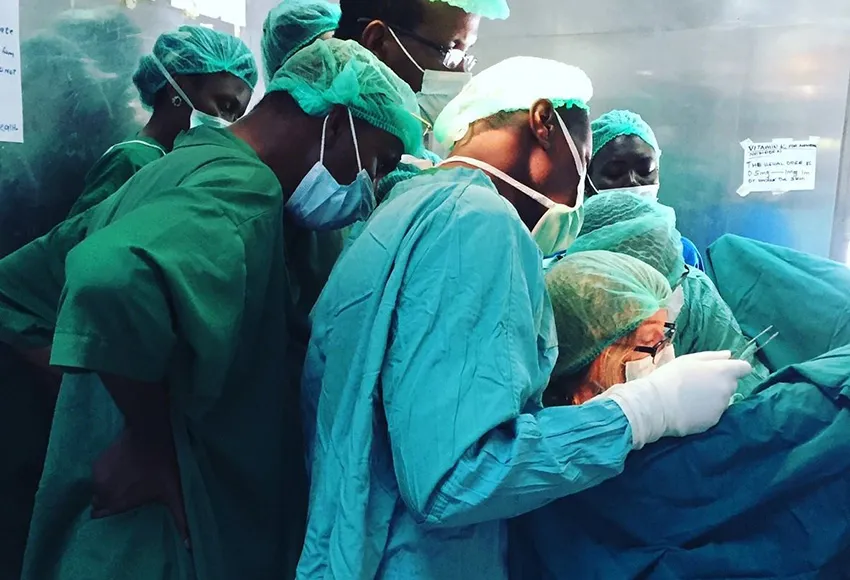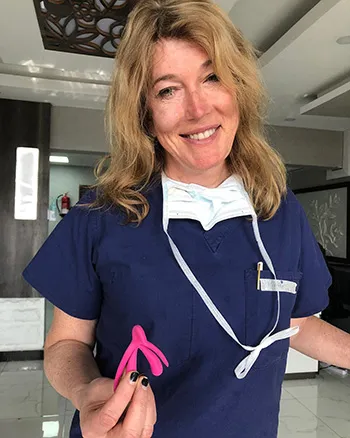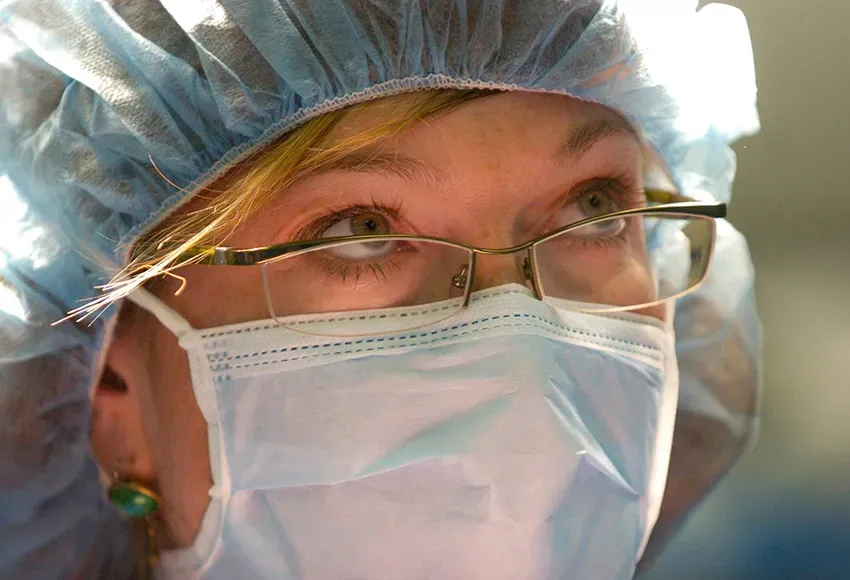Try to guess the profession based on the following description: She's both an artist and a woman of science. She tours the world changing lives and making dreams come true. To the right-leaning press, she might be considered the antichrist, but her supporters and colleagues insist that her work is both far-reaching and indispensable.
If you guessed "counterculture rock star," you'd be wrong. But regardless, everyone in the LGBTQ community should know about Dr. Marci Bowers.
She's an obstetrician, gynecologist, and surgeon best known for her work in gender-affirming and reconstructive surgeries. During her award-winning 36-year career, she has helped deliver over 2,000 babies and performed over 2,000 vaginoplasties, and she has a long list of world firsts.

For instance, since at least 2014, she has led medical missions to countries like Kenya and Burkina Faso to train doctors there in clitoral restoration surgery, a procedure vital to women's sexual health and autonomy in regions where genital cutting is common.
Bowers took some time out of an "epic" week of skiing in Tahoe to speak about her memories of Seattle in the '80s and '90s, as well as the mainstream media's shortcomings regarding gender-affirming care, and other topics.
Time in Seattle
"I didn't really come from the Gay community," Bowers said of her life "B.C.", or "before change." She moved to Seattle in 1986 for an OB/GYN residency and ended up working at the Polyclinic and Swedish Medical Center for 13 years.
She remembers at least a few Queer Seattlites fondly. One in particular stood out to her as a kind of mentor, at least in his "mannerisms" and "compassion" for patients.
"I had a very influential resident by the name of John Hesla," Bowers said. "I didn't even know he was Gay when I started residency, but he had a bedside manner that was exemplary."
Bowers recalled being impressed at the "throng of people" who attended Hesla's Christmas party, where "there were so many Gay people in one place," compared to cities like Minneapolis or St. Paul.
Sadly, Hesla was one of the many people taken from this city's Queer community by the HIV/AIDS epidemic. At his funeral, Bowers recalled, the illness itself was only spoken about in euphemisms. She said she wants to "carry [Hesla's] name forward," and she really can, now that she has become a more public figure.
Mind you, that publicity was never part of her long-term plan. In fact, Bowers "never even wanted to do gender surgery at all," she said. "It was fate that took me there."

Forging her own path
Bowers "went live" and transitioned in 1998, which was a "big shock" to some of the people around her. "But honestly, by two, three years later, nobody really knew... I just wanted to live a woman's life, and that's all I really did."
By the mid-'90s, Bowers had left the Polyclinic to forge her own path and practice medicine solo. She found that, although many of her professional colleagues were supportive, and she "was able to get people to share call coverage," she "wasn't invited to any of the elite groups."
"I could have left town, or I guess I could have reinvented myself somewhere else, but I wanted to stay in Seattle," she said. "The only provider who would offer me space was... a primary care doc by the name of Rob Killian."
Dr. Killian is notable for being the second provider in Washington state to offer HIV care. If his website is up to date, he's still practicing medicine today, though he seems to have moved from the office Bowers described as "maybe 400 square feet."
"There was one exam room and a little eight-by-eight-foot waiting area," Bowers said of the place. "It reminded me of the living room of The Birdcage... And of course the receptionist was this Latin drag queen, who was quite flamboyant and used to toss her hair around. I came from this kind of hoity-toity clinic to this place that was obviously gender diverse."
Trans 101
Even after moving into a bigger office space, business was slow, and Bowers felt that something else had to change. In 1998, opportunity came knocking.
There is plenty of coverage of how Bowers then learned gender-affirmation surgery – how she trained under a pioneer in the field, Dr. Stanley Biber, and took over his practice in 2003 when he retired.
A lot of that coverage, and Bowers's media appearances since then, seem to fall into the category of "Trans 101." In other words, she has been asked to answer basic questions about transness and gender-affirmation surgery for the benefit of confused and frightened cisgender people.
The work of educating the straight masses is valuable and necessary, especially since Bowers is now the president of the World Professional Association for Transgender Health. But I felt it was important to ask: To many members of the Trans community, she basically is a rock star, so does she feel like one?
"No, not really," Bowers said. "My kids, you know, they put me in my place... I am proud that I'm on the cutting edge of two social justice movements in the world."
I asked about how she handles that pressure, what gives her hope, and what questions she wished the media were asking.
"It's complicated, but it doesn't feel like pressure because of how it's all organically involved," she said of her work. "I can only do so much in a day, and the next day I'll do something else... You're in harmony with the forces of good in the world, when it just puts you in places where you're able to do good."
Bowers said she wanted the media to ask more questions about gender diversity and less about transition regret. Some outlets, whether left-leaning or not, are "obsessed with people who change their mind" – who amount to just 1% of those who undergo transition surgeries, according to the Associated Press.
"I think there's a lot of hope out there," Bowers said. "This is who we are. This is not something that's going to go away... Gender diversity is just part of the human fabric."
For the Trans people who might want to follow in her footsteps, Bowers had this advice: "It's a bit of a card game [of] when to play, which card at what time – don't show your hand too early. In other words, if you want to go into Transgender medicine, I know of individuals who have been turned away from medical school completely. So hold that queen of spades a little longer than you think you need to."


